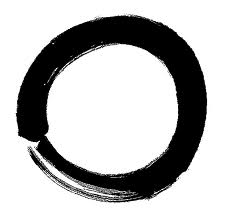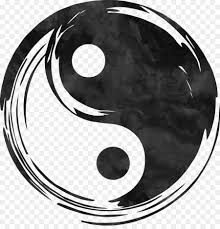

Zen and Taoism
What is Taoism? Is it a Religion?
Noted author of Taoism Derek Lin, writes that Taoism certainly has a religious aspect. However, he notes that concentration should focus on the philosophical aspect, which can be compatible with other religions. In that context, there are no deities or descriptions of the hereafter. Many Christians and atheists alike freely explore the concepts of Taoism and add whatever they think is useful to their own beliefs. The idea is to explore and learn the correct way, or the better way, to live and to conduct our personal affairs.
So why do we find Taoism in the history of Zen?
In "The Zen of Recovery", Mel Ash explored that after the grand efforts of Bodhidarma, Buddhism "mingled extensively with the native philosophies of China, particularly Taoism, and it is that form which has been passed down to present day Zen. Taoism was strikingly similar to Buddhism in most aspects. It provided a natural and easy entry for the Dharma". Based on the teachings of Lao-tsu and Chuang-tsu, Taoism taught that people should harmonise with nature and therein find their way. They referred to the ultimate truth as the Tao, or the Way, that which, while expressing itself as a continual change, itself never changes."
So Tao (pronounced “Dao” as in dowel), literally means “the path” or “the way.” It is a universal principle that underlies everything from the creation of the cosmos to the interaction of human beings. The workings and inter-relatedness of the Tao is vast and often beyond human comprehension.
The Tao can be found in all things and in all relationships. The correct balance of relationships is of primary importance in Taoism. The correct and natural relationship between seeming opposites comprises the harmonious whole. Termed yang and yin, these primal forces indicated good and evil, male and female, heaven and earth, and king and kingdom. This harmony of opposites has been viewed as similar to the Buddha's "Middle Path" or "Middle Way".
The first offering in Lao-tsu's Tao Te Ching (pronounced “Dao De Jing”) introduces that the Tao that can be named is not the eternal Tao or the eternal name.The Tao, much like the central experience of Zen, was something that words could only point to and never capture. In order to understand it, reasoning alone will not suffice. One must also apply intuition.
Some of Lao Tzu’s most significant teachings are as follows:
- Non-contention. Lao Tzu noted that violence and conflict, no matter how minimal or tightly controlled, could not help but cause negative side effects.
- Non-action. The foolish expend a great deal of energy and time trying to do everything, and end up achieving nothing.
- Non-intention. So often we perform virtuous deeds hoping to receive praise or recognition, but that’s actually no virtue at all. True virtue is a state where such actions flow forth naturally, requiring no conscious effort and no need of external approval.
- Simplicity. The basis for our reality and existence is elemental and uncomplicated. Human beings create a lot of trouble for themselves by making everything more complex than they need to be.
- Wisdom. Logic has its place in human affairs, but it isn’t everything. There is a limit to what we can understand through rationality and reasoning. To transcend that limit, we need to fully engage the intuition.
- Humility. The more you learn, the more you realize there’s still so much more to learn.
- Yin and yang. Lao Tzu pointed out that all qualities in the world possess meaning only by the existence of their opposites, or their complements.
The above can be found within Derek Lin's writings https://taoism.net/tao/what-is-tao/
Taoism is an abundant study and much can be found on web searches for "Taoism". A more refined, direct and simple understanding of Taoism can be found at https://taoism.net/tao/